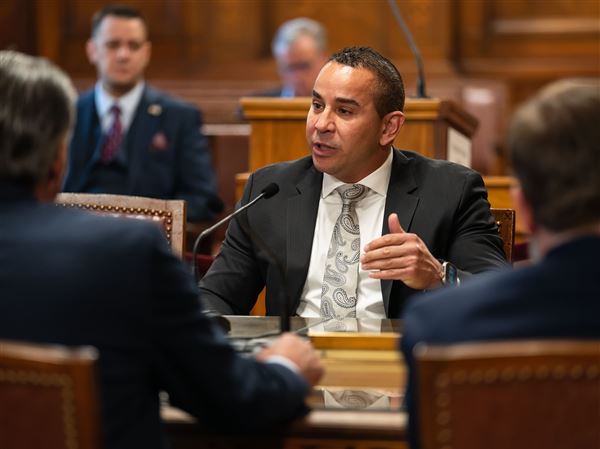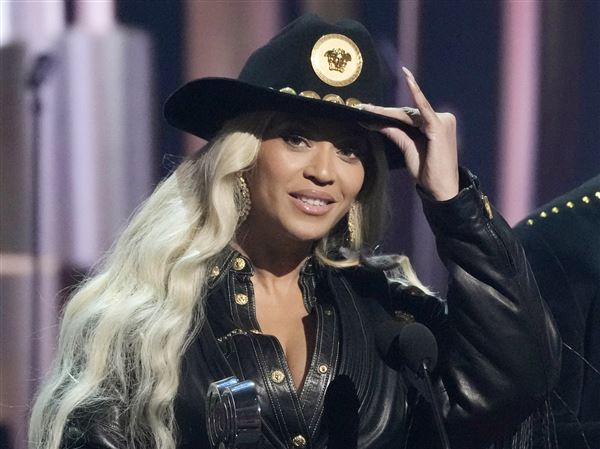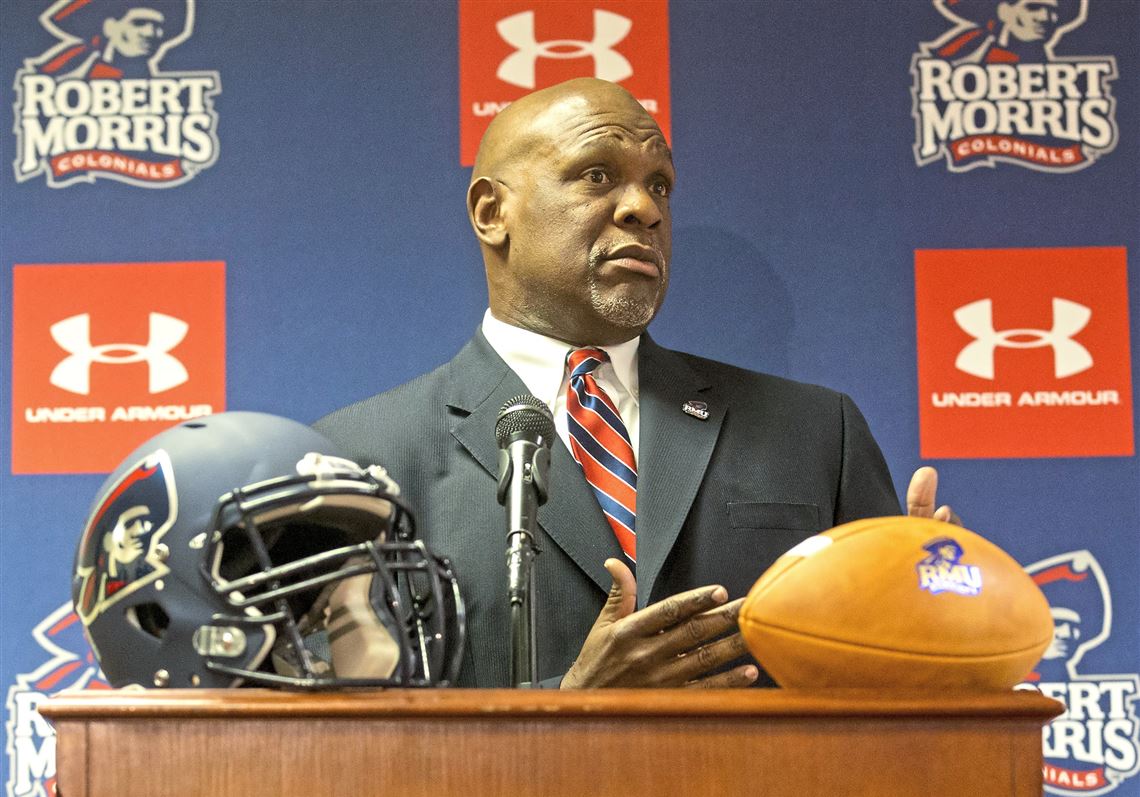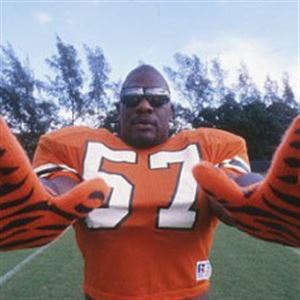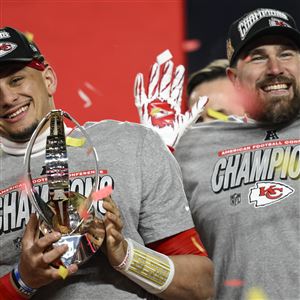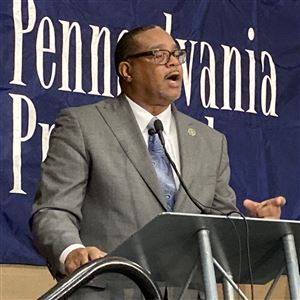Bernard Clark was a car salesman in Tampa, Fla., when he was presented with what he calls a “God situation.”
A friend asked him to coach his son, who was a football player at Santa Fe Catholic High School in Lakeland, Fla. Clark, who had never coached before, told the friend he would have to become one before he accepted the offer. Santa Fe Catholic’s head coach then offered Clark a job as a defensive coordinator.
“I had never coached in my life,” Clark said. “And I fell in love, and I knew that’s what God wanted me to do.”
That was 1997. Twenty years later, Clark is the third head coach in Robert Morris history. His hire comes a month after previous head coach John Banaszak stepped down.
Clark, officially introduced Wednesday after four seasons as a linebackers coach and eventually defensive coordinator at Albany, would’ve once called you “crazy” if you told him he would become a head coach someday. But after a long career as an assistant — one that involved stops at eight different schools — his moment has come.
“It’s unbelievable,” Clark said. “Overwhelming is probably the biggest word because it almost brought me to tears when I found out. ... My mom and dad got a chance to see it. They’ve been married 57 years. So they’ll be able to see a game while I’m head coach. Some of those things are exciting.”
Clark brings a wealth of experience to the job. As a linebacker at Miami, he was MVP of the Orange Bowl following the 1987 season. He was drafted in the third round by the Cincinnati Bengals, where he remained for a season before signing with the Seahawks in 1991.
He describes himself as extremely old school but also relatable. And he wants to get back to basics, using an approach based on discipline and enthusiasm, before he ramps up his schemes. Robert Morris perhaps could use a cultural reset, as the program went 9-35 overall in four seasons under Banaszak.
“The first thing I noticed about Robert Morris is when Joe Walton was the coach over 20 years ago, they won six conference championships,” Clark said. “They won two national championships with non-scholarship guys. They were a great team. For some reason, over the last six or seven years, they’ve fallen off. And there’s no fault of the last coach, has nothing to do with that.
“What I saw was an opportunity for me, again, to help these young men grow, to build the culture here that they had before, to talk to alumni and let them know the things that they’re going to bring back here. That’s what I saw. I saw a chance to build a program.”
Clark said he has three expectations for his players.
The first is punctuality. If a player is late, he has to run 300 yards of up-downs. The second is no cell phones during team meetings. Clark confiscates cell phones for 48 hours if they’re used or not silenced, and he joked that he used to take them for seven days before a former coach talked him out of it.
The third is that players, regardless of race, refrain from using the N-word.
“I don’t want to hear it from black players, I don’t want to hear it from white players,” Clark said. “I think it’s insignificant in our society, and I think it’s something we should not be calling each other, and I want guys to understand that more than anything. I don’t want to hear that word, because again, we’re trying to build better men, better husbands, better fathers.”
Clark said players generally get used to his style of coaching after a while. At the end of the day, it’s about preparing them for the real world, he said.
He joins Robert Morris with three Pittsburgh connections on his resume. The most recent is Greg Gatusso, a Pittsburgh native, former Duquesne head coach from 1993-2004 and former assistant at Pitt from 2005-10. Gatusso is the current head coach at Albany. Clark also was a linebackers coach under former Pitt coach Dave Wannstedt in 2010. Wannstedt and Gatusso were listed as references when Clark applied for the Robert Morris job.
“He told me Pittsburgh a great place,” Clark said of Gatusso. “The thing I learned more than anything else when I was at Pitt, it’s a sports town. People here love their sports more than anything else. As a head coach, the greatest information he told me is stay the course. Even if it’s not going your way, whatever you believe in, make sure you stay the course. And I believe in discipline and enthusiasm. And I’m going to stay the course with that.”
The third local connection is current East Central Community College head coach Ken Karcher, a Pittsburgh native who was an assistant at Pitt from 1993-1996 and hired Clark as a special teams coordinator when he was the head coach at Liberty in 2000.
“The first thing (Karcher) told me about Pennsylvania players and Pittsburgh players is that they’re tough,” Clark said. “That’s one thing I saw. These guys play hard, they play extremely hard. And where I’m from, Tampa, Fla., we have speed. So if we can put toughness and speed together, I think we’re going to be OK.”
Omari Sankofa II: osankofa@post-gazette.com and Twitter @omarisankofa
First Published: December 20, 2017, 8:28 p.m.



